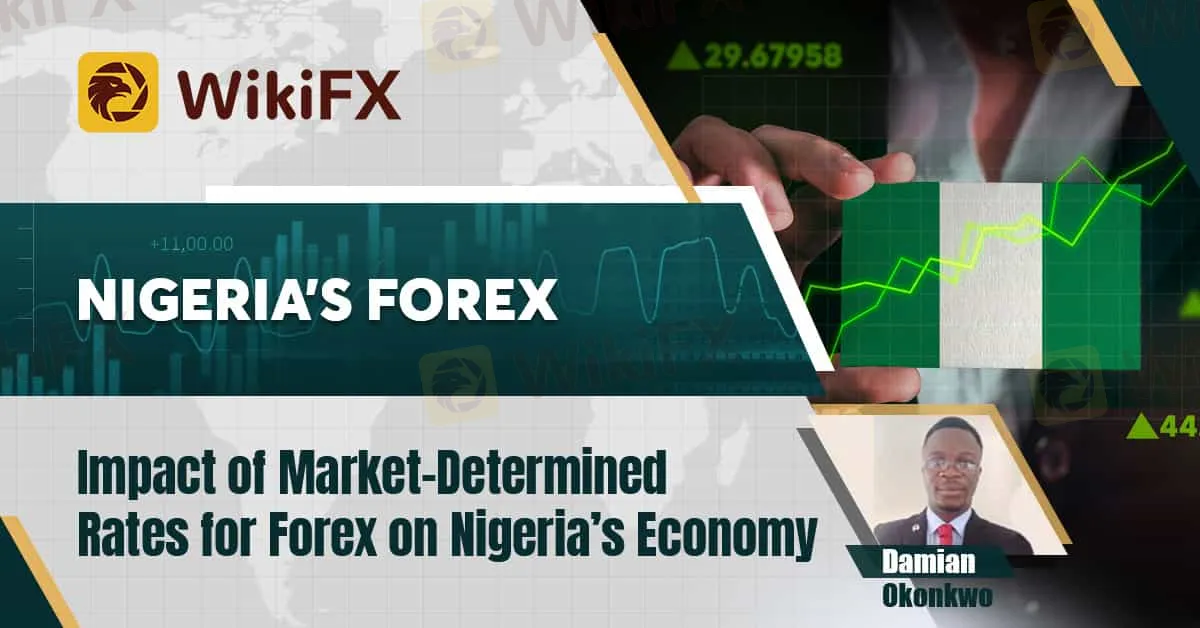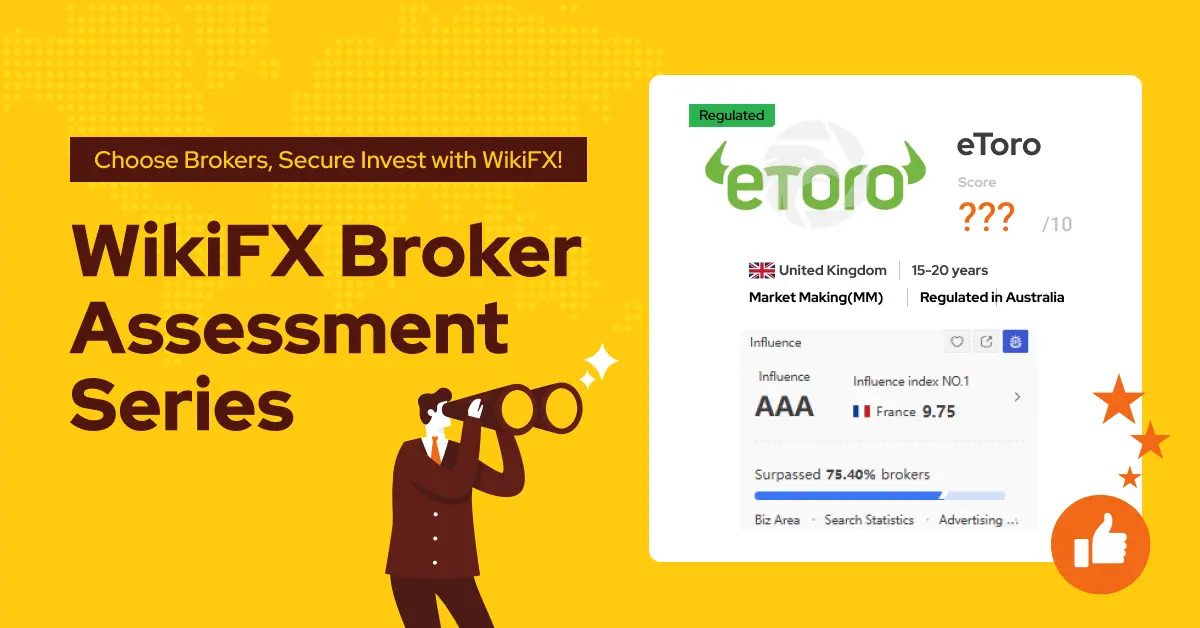简体中文
繁體中文
English
Pусский
日本語
ภาษาไทย
Tiếng Việt
Bahasa Indonesia
Español
हिन्दी
Filippiiniläinen
Français
Deutsch
Português
Türkçe
한국어
العربية
Impact of Market-Determined Rates for Forex on Nigeria’s Economy
Abstract:The shift towards market-determined forex rates presents both opportunities and challenges for the Nigerian economy. While increased efficiency, export competitiveness, and potential for higher government revenue are attractive propositions, managing inflation, exchange rate volatility, and the external debt burden require careful policy measures and economic diversification.

By: Damian Okonkwo

Introduction
The quest to meet the high forex demands in Nigeria has led the government to float the Naira at the Forex market and adopt a market-determined rate for forex rather than having the rate fixed by the CBN. This policy has brought more woes for the Naira which depreciated to record lows against other foreign currencies since the implementation of this policy in June 2023. This work exposes the benefits and disadvantages of having a market-determined rate for forex.
Meaning of Market-Determined Rates for Forex
Market-determined rates for Forex refer to exchange rates that are set by the forces of supply and demand in the forex market, rather than being artificially fixed by a central bank. This gives the market dealers more liberty to set the rate based on the principle of demand and supply rather than a fixed rate.
Potential Benefits of Market-Determined Rates for Forex
Here are some of the potential benefits of a running a market-determined rates for forex:
● Increased Efficiency and Transparency: A market-driven system removes artificial exchange rates, fostering a more efficient allocation of forex. Businesses can make informed decisions based on real-time market forces, reducing uncertainty and distortions.
● Trade Competitiveness: Market-determined Forex rates can significantly influence Nigeria's trade competitiveness. A flexible exchange rate allows the Naira to adjust based on supply and demand, impacting export and import dynamics. A depreciating Naira can make exports more competitive in international markets, potentially boosting the country's trade balance. Conversely, a stronger Naira may make imports more affordable but might pose challenges for export-oriented industries.
● Foreign Reserves and Economic Stability: Market-determined Forex rates influence the level of foreign reserves held by Nigeria. A flexible exchange rate system allows for a more natural adjustment to external economic shocks. However, excessive volatility may lead to reserve depletion if not managed prudently. Effective central bank interventions and policy measures become imperative to maintain an adequate reserve level, ensuring stability and confidence in the economy.
● Investor Confidence and Capital Flows: Market participants, including foreign investors, closely monitor Forex rates when making investment decisions. A stable and transparent Forex market enhances investor confidence. A fluctuating or volatile exchange rate can deter foreign investments, impacting capital inflows. Striking the right balance and providing clear policy signals is vital to attract and retain foreign capital, fostering economic growth and development.
● Improved Government Revenue: Export earnings and foreign direct investment, both potentially boosted by a market-driven system, can translate to higher government revenue in naira terms. This allows for increased investment in infrastructure and social programs.
Potential Challenges:
a) Import Price Inflation: A depreciation of the naira can lead to higher import prices, pushing up inflation. This can disproportionately impact low-income earners who spend a larger share of their income on essential imported goods.
b) Exchange Rate Volatility: Market-determined rates can be susceptible to fluctuations, creating uncertainty for businesses and hindering long-term planning. This volatility can discourage investment and disrupt economic growth.
c) Pressure on External Reserves: If demand for foreign currency outstrips supply, the Central Bank of Nigeria (CBN) may need to intervene to stabilize the exchange rate, potentially depleting external reserves.
d) Debt Burden: Nigeria has a significant amount of external debt denominated in foreign currencies. A weaker naira can increase the debt burden in naira terms, straining government finances.
Conclusion
The shift towards market-determined forex rates presents both opportunities and challenges for the Nigerian economy. While increased efficiency, export competitiveness, and potential for higher government revenue are attractive propositions, managing inflation, exchange rate volatility, and the external debt burden require careful policy measures and economic diversification. The long-term impact of this policy will depend on the effectiveness of these measures and Nigeria's ability to navigate the inherent complexities of a market-driven forex system.

Disclaimer:
The views in this article only represent the author's personal views, and do not constitute investment advice on this platform. This platform does not guarantee the accuracy, completeness and timeliness of the information in the article, and will not be liable for any loss caused by the use of or reliance on the information in the article.
Read more

eToro Broker Review: Something You Need to Know
As a reputable broker that has offered services for decades, eToro has played a significant role in the industry. However, it doesn’t mean it suits every trader. Besides, WikiFX has recently received more than 40 complaints against a broker called eToro. In today’s article, we will offer you a comprehensive review of this broker so that you can have a close overall look at eToro.

WikiFX Broker Assessment Series | WCG Markets: Is It Trustworthy?
In this article, we will conduct a comprehensive examination of WCG Markets, delving into its key features, fees, safety measures, deposit and withdrawal options, trading platform, and customer service. WikiFX endeavours to provide you with the essential information required to make an informed decision about utilizing this platform.

Nigerian Market Weakness Triggers Early Stock Market Drop
Market capitalization plunges amid widespread sell-off; investor caution rises as short-term outlook remains uncertain.

Big Changes at Saxo Bank: What Traders and Partners Need to Know
Saxo Bank has announced a wide range of updates to its trading platforms, aimed at making it easier for partners and clients to manage portfolios, understand performance, and handle options trading.
WikiFX Broker
Latest News
Short-Term Pressure Mounts on Gold as Risk Sentiment Improves
How Will the U.S.-China Trade Deal Affect the Dollar and Global Markets?
Radiant DAO Proposes Compensation Plan for Wallet Losses
BitGo Secures MiCA License, Expands Crypto Services Across the EU
Big Changes at Saxo Bank: What Traders and Partners Need to Know
Traders Warned to Stay Alert Amid Growing Exposures for INGOT Brokers
WELTRADE's transformation from Reliable to a Problematic Broker
WikiFX “Elite’s View on the Challenge: Dialogue with Global Investment Leaders” Concludes Successful
Plus500 Review 2025: Trusted CFD Broker with Top Features Unveiled
Plus500 Q1 2025: Strong Growth Amid Trade War, Mehta Acquisition
Currency Calculator


